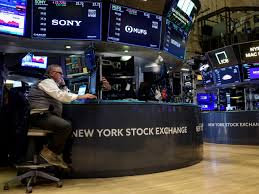Understanding the Good Friday Stock Market Holiday

Introduction to Good Friday Stock Market Holiday
Good Friday marks an important observance in the Christian calendar, recognized for its solemnity and significance. For investors and traders, this day holds relevance as it usually results in the closure of stock markets in many countries, including India. Understanding the implications of this holiday is crucial for effectively managing stock trading strategies and investments.
The Impact of Good Friday on Global Stock Markets
On Good Friday, which varies each year but typically falls in March or April, major trading platforms halt operations. In India, the National Stock Exchange (NSE) and Bombay Stock Exchange (BSE) are closed for the day. This closure is part of a broader trend observed worldwide among exchanges, reflecting cultural respect for the holiday. For global investors, recognizing these closures is essential as they can impact trading volumes and market patterns.
Market Reactions Preceding the Holiday
Trading activities typically see an uptick as investors prepare for the Good Friday holiday. Often, traders rush to finalize positions, leading to increased volatility in the markets. The closure prompts many to reassess their portfolios, with some opting for cautious strategies in anticipation of the uncertainty during the holiday period.
Historical Context and Trends
Historically, Good Friday closures have affected market performance. In past years, stocks have shown varying trends immediately before and after the holiday, influenced by global economic news and investor sentiment. In light of these factors, analysts watch closely for patterns, especially as financial markets react to external events like economic data releases, company earnings reports, or geopolitical developments.
Conclusion: Significance for Investors
As Good Friday approaches, it’s prudent for investors to plan accordingly. With the stock market closed, traders should consider adjusting their strategies. Historically, taking a cautious approach during this period has allowed many to avert potential losses. The closure of stock markets on Good Friday is more than just a holiday; it serves as a reminder of the broader economic cycles and cultural observations that influence global trading dynamics. Savvy investors can use this knowledge to better prepare for the days following the holiday, navigating potential market fluctuations with informed strategies.








